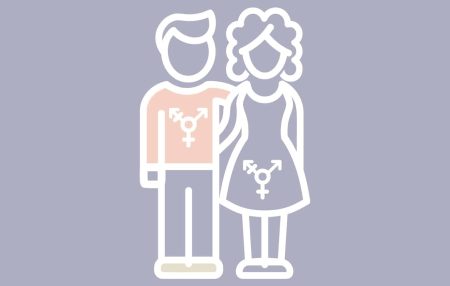Held annually since 2013, National Fertility Awareness Week was founded by the charity Fertility Network UK to raise awareness of those struggling with fertility issues. This year, National Fertility Awareness Week will be held from 3 – 7 November, and the theme is “Every Voice, Every Journey”, which seeks to highlight the voices and experiences of those 3.5 million people in the UK who are struggling with fertility issues.
What is Infertility?
Infertility is the inability of a couple or individual to conceive, despite regular unprotected sexual intercourse over a period of a year.
Infertility can be caused by a variety of factors, including lifestyle issues which range from smoking and substance abuse to high stress and even excessive exercise. Infertility can also be triggered by past infection such as Hepatitis, Mumps or an STI such as Gonorrhoea or Chlamydia. Another common cause in both men and women is an imbalance of hormones – for men, a deficiency of testosterone can result in a low sperm count, and for women, a deficiency in oestrogen, progesterone, Luteinizing Hormone (LH), Follicle-Stimulating Hormone (FSH) or Anti-Müllerian Hormone (AMH) can disrupt ovulation, egg development and negatively impact a woman’s egg reserve.
Infertility in women can also be caused by a delay in or a lack of ovulation, often caused by PCOS (Polycystic Ovarian Syndrome) or by Primary Ovarian Insufficiency (POI) where a woman’s ovaries cease working before age 40. Women are also at risk of conditions such as Endometriosis, where the lining of the womb grows in the wrong place, causing scarring, inflammation or cysts which can potentially interfere with the release of the egg or its fertilisation, and Fibroids, which is where non-cancerous growths grow in or around the womb, at times (but not always) impacting fertility.
A common cause of infertility in men is Varicoceles, which causes enlarged, blocked veins in the scrotum. Men are also at risk of infertility as a result of certain surgeries, or complications with surgeries, including surgery for a hernia or by complications involved in the draining of the testes. Infertility in men can also be caused by external trauma to the genitals.
How Common is Infertility?
According to the World Health Organisation, 1 in 6 people will struggle with infertility in their lifetime and 1 in 7 couples will have difficulty conceiving. In the UK, it is estimated that some 3.5 million people struggle with infertility.
Not every condition will definitively result in infertility. For example, some 190 million women worldwide suffer from Endometriosis, affecting around 10% of women of reproductive age, and whilst approximately 30 -50 percent of this cohort will go on to experience infertility, the remaining 50 – 70 percent will experience mild to moderate symptoms and still get pregnant spontaneously.
Similarly, while Varicoceles is prevalent among infertile men, with 40% of all men being evaluated for infertility having the condition, the majority of cases are asymptomatic. Although it affects 15 – 20 percent of the general male population, only 2 percent of those who suffer from the condition will go on to suffer from infertility.
Despite not every condition mentioned above conclusively causing infertility, it is vital to remain vigilant and be aware of the risks, including (where appropriate) taking action to carefully assess family building and conception arrangements or preserving individual fertility through egg or sperm freezing.
How does National Fertility Awareness Week help those struggling?
National Fertility Awareness Week serves as a message to those struggling that they are not alone and that they are seen, heard and supported. It acknowledges the worries and fears that accompany infertility and seeks to ameliorate those concerns by fostering a compassionate community of mutual support, greater understanding and awareness.
In doing so, in sharing stories and experiences, Fertility Network UK seeks to ease the struggle with infertility and make it less isolating and intimidating and show that there are pathways forward.
Specialist Fertility and Family Law
Given the traumatic effect infertility can have on an individual and/or couple, it is important to maximise reproductive choice and make informed decisions about family building, fertility treatment and alternative pathways to parenthood which includes IVF, Surrogacy or Sperm/Egg Donation.
Specialist fertility and family law advice provides legal and practical strategies to effectively plan fertility and preconception, pregnancy, birth, family life and life after death (posthumous conception). Expert legal advice identifies and addresses a range of legal and wider issues associated with family creation and fertility treatment, putting family building and life on a firm foundation and maximising successful results, including:
- Legal issues and family building options due to impaired fertility (including cancer diagnosis, unsuccessful conception, age-related fertility decline, change in gender, delayed parenthood).
- Complex personal and family situations.
- Unexpected death of a loved-one and issues associated with posthumous storage and use of eggs, sperm and embryos in fertility treatment.donor conception/surrogacy (e.g. due to an accident or illness).
- Legal issues and options associated with assisted conception involving a surrogate, donor, co-parent or an ex-partner (e.g. legal parentage, parental rights, financial responsibility and dispute mitigation).
- Legal and wider aspects of international surrogacy or a UK surrogacy arrangement.
- Difficulties with storage and use of frozen eggs, sperm and embryos in fertility treatment and surrogacy in the UK (e.g. problems with consent).
- Issues with import of frozen gametes and embryos into the UK for use in fertility treatment and surrogacy (e.g. due to anonymous and commercially obtained gametes and embryos engaging UK public policy restrictions).
- Issues with the export of frozen gametes and embryos abroad for use in fertility treatment and surrogacy (e.g. consent and storage term difficulties).
- Legal and biological parentage issues and disputes (e.g. concerning DNA testing, direct-to-consumer genetic testing, rectification of birth certificate, declaration of parentage, step-parent adoption, recognition of overseas adoption, parental order following surrogacy).
- Care and upbringing of children following a dispute with an ex-partner, parent, donor or surrogate (e.g. contact, residence, financial arrangements, parental responsibility, specific issue or prohibited steps).
- Expert witness fertility, surrogacy and donor conception law services.




